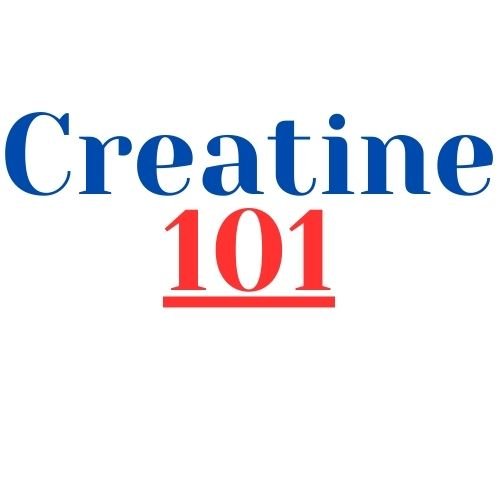Creatine 101: A Comprehensive Guide For Beginners

Table of Contents
What is Creatine and How Does it Work?
Creatine is a naturally occurring compound primarily found in skeletal muscle. It plays a vital role in energy production, specifically during high-intensity activities like weightlifting and sprinting. The primary form used in supplementation is creatine monohydrate, which has been extensively researched and proven effective. Creatine works by increasing the levels of phosphocreatine (creatine phosphate) in your muscles. Phosphocreatine is crucial for ATP resynthesis, the process that replenishes adenosine triphosphate, the body's primary energy currency. When you engage in intense exercise, your muscles use ATP rapidly. Creatine supplementation helps replenish ATP stores faster, allowing you to perform more repetitions, lift heavier weights, and improve overall strength and power output.
- Creatine is a naturally occurring compound found in the body and certain foods, such as red meat and fish.
- It acts as an energy buffer in your muscles, enhancing ATP resynthesis.
- Creatine supplementation leads to increased muscle creatine stores, improving performance during high-intensity exercise.
- It plays a key role in muscle growth and hypertrophy by facilitating muscle protein synthesis.
Benefits of Creatine Supplementation
Numerous studies support the effectiveness of creatine supplementation in enhancing various aspects of physical performance and muscle growth. The benefits extend beyond just strength training; creatine can benefit athletes in a variety of disciplines.
- Increased Strength and Power Output: Creatine significantly boosts strength and power, leading to increased lifting capacity and improved athletic performance in activities requiring short bursts of intense energy. This benefit is particularly pronounced in strength training and powerlifting.
- Enhanced Muscle Growth and Hypertrophy: Creatine supplementation promotes muscle growth (hypertrophy) by stimulating muscle protein synthesis and increasing cell hydration. This leads to noticeable increases in muscle mass over time, particularly when combined with a consistent resistance training program.
- Improved High-Intensity Exercise Performance: Whether it's sprinting, weightlifting, or other high-intensity activities, creatine helps you push harder and longer by delaying fatigue. This translates to more reps, sets, and overall improved performance.
- Potential Cognitive Benefits: Some research suggests that creatine may offer cognitive benefits, such as improved memory and cognitive function. However, more research is needed to definitively confirm these effects.
How to Take Creatine Effectively
The most common and well-researched form of creatine is creatine monohydrate. While other forms exist (creatine HCL, creatine ethyl ester), creatine monohydrate remains the gold standard due to its extensive research and proven efficacy.
- Loading Phase: To rapidly saturate your muscles with creatine, many individuals follow a loading phase. This typically involves consuming 20 grams of creatine monohydrate per day, divided into four 5-gram doses, for 5-7 days.
- Maintenance Phase: After the loading phase, transition to a maintenance phase of 3-5 grams per day. This helps maintain elevated muscle creatine levels.
- Timing: Creatine can be taken any time of the day, but many prefer to take it post-workout along with carbohydrates and/or protein to enhance absorption.
- Hydration: Adequate hydration is crucial when using creatine, as it can cause mild water retention. Drink plenty of water throughout the day to support your body's overall hydration and help maximize the creatine uptake.
Potential Side Effects and Precautions
While generally safe, creatine supplementation can cause some mild side effects in a small percentage of users. These are usually temporary and subside upon discontinuation.
- Water Retention: Creatine can lead to mild water retention, resulting in a temporary increase in body weight. This is due to its effect on muscle cell hydration.
- Weight Gain: The weight gain is primarily water weight, but some may also experience a slight increase in muscle mass.
- Gastrointestinal Issues: Some individuals may experience mild gastrointestinal discomfort, such as bloating or nausea, especially during the loading phase.
- Kidney Function: While rare, creatine might pose risks to individuals with pre-existing kidney issues. Consult your doctor before using creatine if you have any kidney problems.
- Creatine Contraindications: Individuals with liver or kidney disease, pregnant or breastfeeding women, and those under 18 years old should generally avoid creatine supplementation without consulting a healthcare professional.
Choosing the Right Creatine Supplement
The creatine supplement market offers various forms of creatine, but creatine monohydrate remains the best-studied and most effective option.
- Creatine Monohydrate: This is the most researched and widely recommended form of creatine. Its effectiveness and safety have been extensively documented in scientific literature.
- Other Forms: While other forms like creatine HCL and creatine ethyl ester exist, there's limited evidence to suggest they are significantly superior to creatine monohydrate.
- Reputable Brands: Always buy creatine supplements from reputable brands that undergo third-party testing to ensure purity and quality. Look for certifications that guarantee the product contains what the label claims.
Conclusion
Creatine, particularly creatine monohydrate, is a safe and effective supplement that can significantly enhance strength, power, and muscle growth when used correctly. By following the recommended dosage and hydration guidelines, you can maximize its benefits while minimizing potential side effects. Remember, a loading phase can help speed up the process of saturating your muscles with creatine, but long-term maintenance is key to reaping the rewards. However, remember to consult your healthcare professional before starting any new supplement regimen, especially if you have pre-existing health conditions.
Call to Action: Ready to experience the power of creatine for yourself? Start your fitness journey with confidence by incorporating creatine into your routine. Learn more about [link to relevant product or further resources]. Remember to consult your doctor before starting any new supplement.

Featured Posts
-
 Erfolgreiche Schlichtung Bei Der Bvg Kein Streik Zu Ostern
May 15, 2025
Erfolgreiche Schlichtung Bei Der Bvg Kein Streik Zu Ostern
May 15, 2025 -
 Mesa Baseball Cubs Vs Padres Preview Tuesday March 4th 2 05 Ct
May 15, 2025
Mesa Baseball Cubs Vs Padres Preview Tuesday March 4th 2 05 Ct
May 15, 2025 -
 Boston Celtics Finals Gear Sale Under 20 While Supplies Last
May 15, 2025
Boston Celtics Finals Gear Sale Under 20 While Supplies Last
May 15, 2025 -
 Avertisment Apa De Robinet Romania Zone Cu Risc Crescut
May 15, 2025
Avertisment Apa De Robinet Romania Zone Cu Risc Crescut
May 15, 2025 -
 Vont Weekend 2025 Four Days In Pictures 96 1 Kissfm
May 15, 2025
Vont Weekend 2025 Four Days In Pictures 96 1 Kissfm
May 15, 2025
